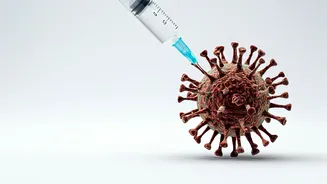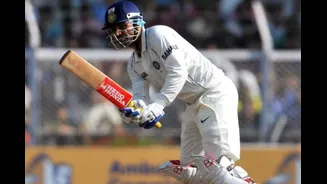Vaccines Aren't Perfect
Flu shots, while highly effective, aren't foolproof. Multiple factors contribute to why someone might still get the flu after vaccination. One key reason
is that flu viruses are constantly changing, with new strains emerging each year. Vaccine manufacturers predict the most common strains expected to circulate each flu season and formulate the vaccine accordingly. However, the prediction may not always be 100% accurate. Sometimes, the circulating strains differ from those in the vaccine. Even if the strains match, the vaccine's effectiveness can vary depending on an individual's age and overall health. Furthermore, it takes about two weeks after vaccination for the body to develop protective antibodies. During this period, a person could contract the flu.
Mismatching Strains Matter
The influenza virus's ever-changing nature is a significant factor in flu shot effectiveness. The World Health Organization (WHO) and other health organizations analyze flu strains globally to predict which will be most prevalent. Based on these predictions, manufacturers develop vaccines. If the actual circulating strains differ from those included in the vaccine, the vaccine's effectiveness decreases. This is not a failure of the vaccine itself, but rather the result of the virus's ability to mutate rapidly. This means that protection could be minimal if the vaccine's composition doesn't align with the flu strains actively spreading. This highlights the importance of getting vaccinated annually, as the vaccine is updated each year to better match the anticipated strains.
Immune Response Variations
The effectiveness of the flu vaccine also hinges on individual immune responses. Factors like age and overall health can influence how well the body produces antibodies. Older adults and those with certain chronic conditions may have a weaker immune response, meaning the vaccine might not offer the same level of protection. The vaccine's effectiveness also varies. In some cases, the vaccine might offer significant protection, reducing the severity of the illness even if one still contracts the flu. The vaccine helps, lessening the duration of symptoms. These variations emphasize the importance of additional preventative measures, like frequent handwashing and avoiding close contact with those who are sick, especially if you are considered high-risk.
Timing and Protection Delay
Another crucial aspect to consider is the timing of vaccination. Protection against the flu isn't instantaneous; it takes around two weeks for the body to develop full immunity after getting the shot. During this period, an individual remains susceptible to infection. If exposed to the flu virus shortly after vaccination, they could still contract the illness. This is why public health officials recommend getting vaccinated early in the flu season, ideally before the flu starts circulating widely in the community. Vaccinating early gives your body ample time to build up protective antibodies before encountering the virus. This proactive approach maximizes your chances of staying healthy throughout the flu season.
What to Do Now
If you experience flu symptoms even after vaccination, don't dismiss it. Consult your doctor to confirm your diagnosis and discuss treatment options. Antiviral medications can be effective in reducing the severity and duration of the illness, particularly if started early. Rest, hydration, and over-the-counter medications can help manage symptoms like fever, cough, and body aches. Additionally, protect others by staying home and avoiding contact with people until you are fever-free for at least 24 hours without the use of fever-reducing medications. This helps contain the spread of the virus. Consider the vaccination status of those around you and take appropriate precautions.





















